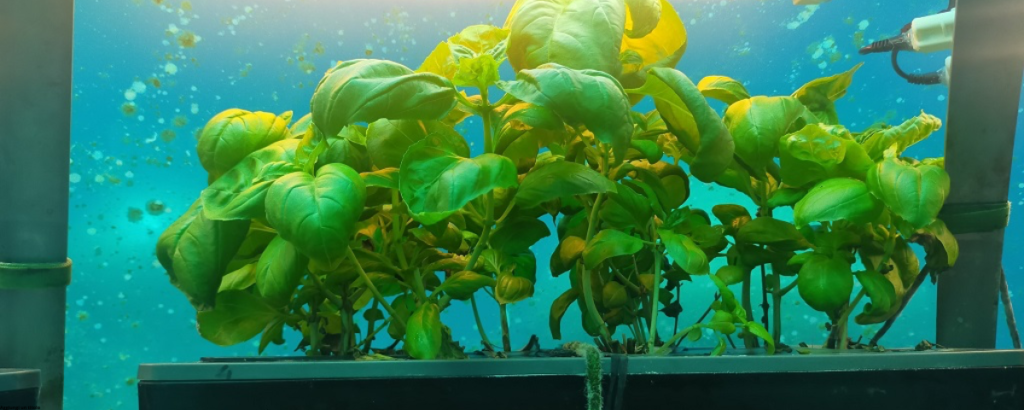
The sea as a vegetable garden:
The green future of underwater cultivation
In recent years, agriculture has undergone a significant transformation, driven by the need to find sustainable solutions to feed a growing global population. Among the emerging innovations, one of the most fascinating is the underwater cultivation of plants such as basil and other aromatic herbs. This type of agriculture, conducted on the seabed, represents a pioneering frontier in the future of farming. In this article, we will explore the details of this technique, its benefits, the challenges it faces, as well as its potential impact on the environment and the global economy.
A dive into underwater farming
Underwater farming is an agricultural technique that utilizes marine resources to cultivate edible plants. This innovative method was first experimented along the Italian coasts, where several underwater domes, known as biospheres, were installed a few meters below the water’s surface. These structures are designed to create a controlled growing environment, taking advantage of the stable sea temperatures and the abundance of dissolved CO2 in the water, which promotes photosynthesis.
Why basil and aromatic herbs?
Basil, one of the most widely used aromatic herbs in the world, was one of the first plants to be successfully cultivated in underwater biospheres. But why basil? This plant is particularly suited to underwater cultivation for several reasons. First, basil thrives in environments with high humidity levels, and the marine environment is naturally rich in this aspect. Moreover, the thermal stability of seawater ensures consistent growth, reducing the stress that plants may experience due to climate variations on the surface.
In addition to basil, other herbs such as mint, thyme, and marjoram are showing promising adaptability to underwater cultivation. These plants, often used in the preparation of food and beverages, represent an interesting addition to the marine crop repertoire.
Environmental benefits and sustainability
One of the main advantages of underwater farming is its sustainability. Unlike traditional agriculture, which requires large amounts of freshwater, chemical fertilizers, and pesticides, underwater farming harnesses the natural resources of the sea. Seawater, rich in nutrients, reduces the need for fertilizers, while the enclosed environment of the biospheres protects the plants from pests and diseases, eliminating the need for pesticides.
Additionally, underwater agriculture does not require the use of agricultural land, which is increasingly limited and contested. This approach allows the preservation of terrestrial land for other purposes, such as forest and natural area conservation, thus contributing to the reduction of deforestation.
Challenges and future prospects
Despite the promising results achieved so far, underwater cultivation also presents some challenges. Among these are the technical complexity and high costs of installing and maintaining the biospheres. Currently, the process is still experimental and requires further research to optimize yields and reduce costs.
Another challenge is posed by the marine ecosystem. Although the biospheres are designed to have minimal impact on the surrounding environment, it is crucial to carefully monitor the interactions between underwater crops and marine fauna. Additionally, the long-term impact of these structures on marine biodiversity needs to be evaluated.
Economic impact and global potential
From an economic perspective, underwater cultivation could open new market opportunities. The demand for sustainable food products is steadily increasing, and marine crops could meet this need. Moreover, this technology could be exported to countries with limited access to agricultural land but with abundant marine resources, thus contributing to global food security.
In Italy, the underwater biosphere project has already attracted the attention of investors and institutions, and it could become a replicable model internationally. With the expansion of research and development, underwater farming could become a common practice, revolutionizing the way we produce food and protect our planet.
The cultivation of basil and underwater herbs on the seabed represents one of the most innovative frontiers of modern agriculture. This method not only promises to increase food production sustainably but also offers a solution to address some of the most urgent environmental challenges of our time. Although there are still obstacles to overcome, underwater farming has the potential to radically transform the agricultural sector and contribute to a more sustainable future for all.
The future of agriculture may be bluer than we imagine.



